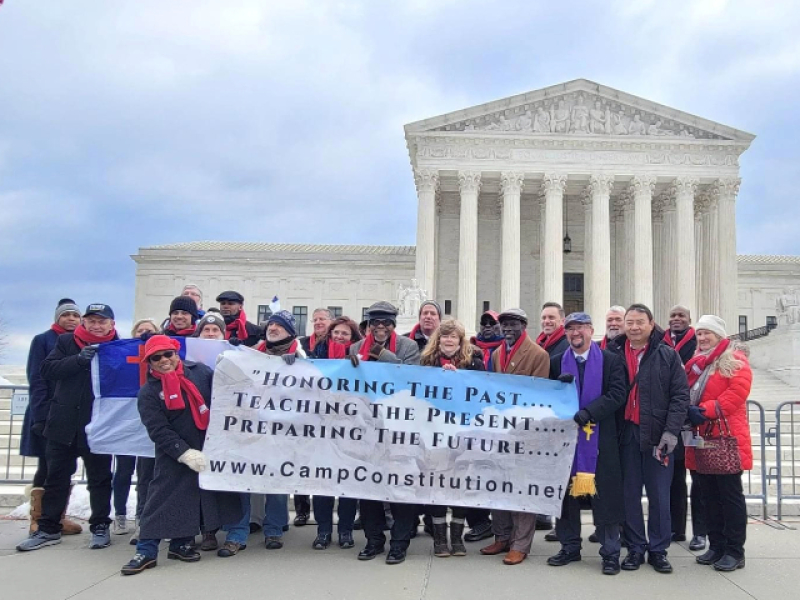
The Supreme Court decided that Boston violated the Constitution after prohibiting a Christian flag to be flown outside city hall.
On Monday, the Supreme Court decided that the city of Boston violated the free speech rights of a conservative activist that are ensured by the Constitution when it rejected his request to fly a Christian flat on the flag pole outside city hall. The court, which unanimously voted 9 to 0, decided that because the city allowed others to use the flagpole to fly other flags, its rejection of the cross-bearing flag violated the free speech rights of activist Harold Shurtleff.
"Boston's flag-raising program does not express government speech," Justice Stephen Breyer, who was nominated by President Bill Clinton, wrote in the opinion, NBC News reported. The opinion had also reversed a lower court's decision.
Justice Breyer wrote that the city discriminated against Shurtleff because of his "religious viewpoint" despite allowing other citizens to use one of the three flag poles outside city hall that fly the U.S., Massachusetts and Boston flags. But a federal district court and a federal appeals court had previously sided with Boston, saying that the flags being flown on city hall amounted to government speech.
The Supreme Court offered a different perspective by citing "the extent to which Boston actively controlled these flag raisings and shaped the messages the flags sent." Judge Breyer wrote, "The answer, it seems, is not at all and that is the most salient feature of this case."
In 2017, Shurtleff and his Camp Constitution sought to use a flagpole outside the Boston city hall to fly a white banner with a red cross on a blue background in the upper left corner, which was called a Christian flag to mark Constitution Day on September 17. The Boston government had approved 284 consecutive applications to fly flags, often flags of other countries, before it rejected Shurtleff's Christian flag, Religion News Service reported.
Boston's city government urged Shurtleff to fly a different banner, but the activist refused and filed a case. The lower courts upheld the city's decision. But Now, the Supreme Court unanimously ruled against Boston to grant Shurtleff a win.
Judge Breyer wrote, "the city's lack of meaningful involvement in the selection of flags or the crafting of their messages leads us to classify the flag raisings as private, not government, speech-though nothing prevents Boston from changing its policies going forward." His opinion comes just months before he is set to retire in summer and will be succeeded by Judge Ketanji Brown Jackson.
CBS News reported that Justice Brett Kavanaugh also released a separate opinion in which he argued, "Under the Constitution, a government may not treat religious persons, religious organizations, or religious speech as second-class."
In a conversation with Word and Way in January this year, Shurtleff said that Christians in Boston "need to have a little bigger hand in things," which was why he thought "it would be nice to fly the Christian flag on the 'public access flagpole' to commemorate Constitution Day." The activist is a former field director for the John Birch Society, an organization dedicated to "fighting both communism and racial desegregation in American society," the report stated. Shurtleff left JBS in 2016 after 26 to focus on Camp Constitution.


















